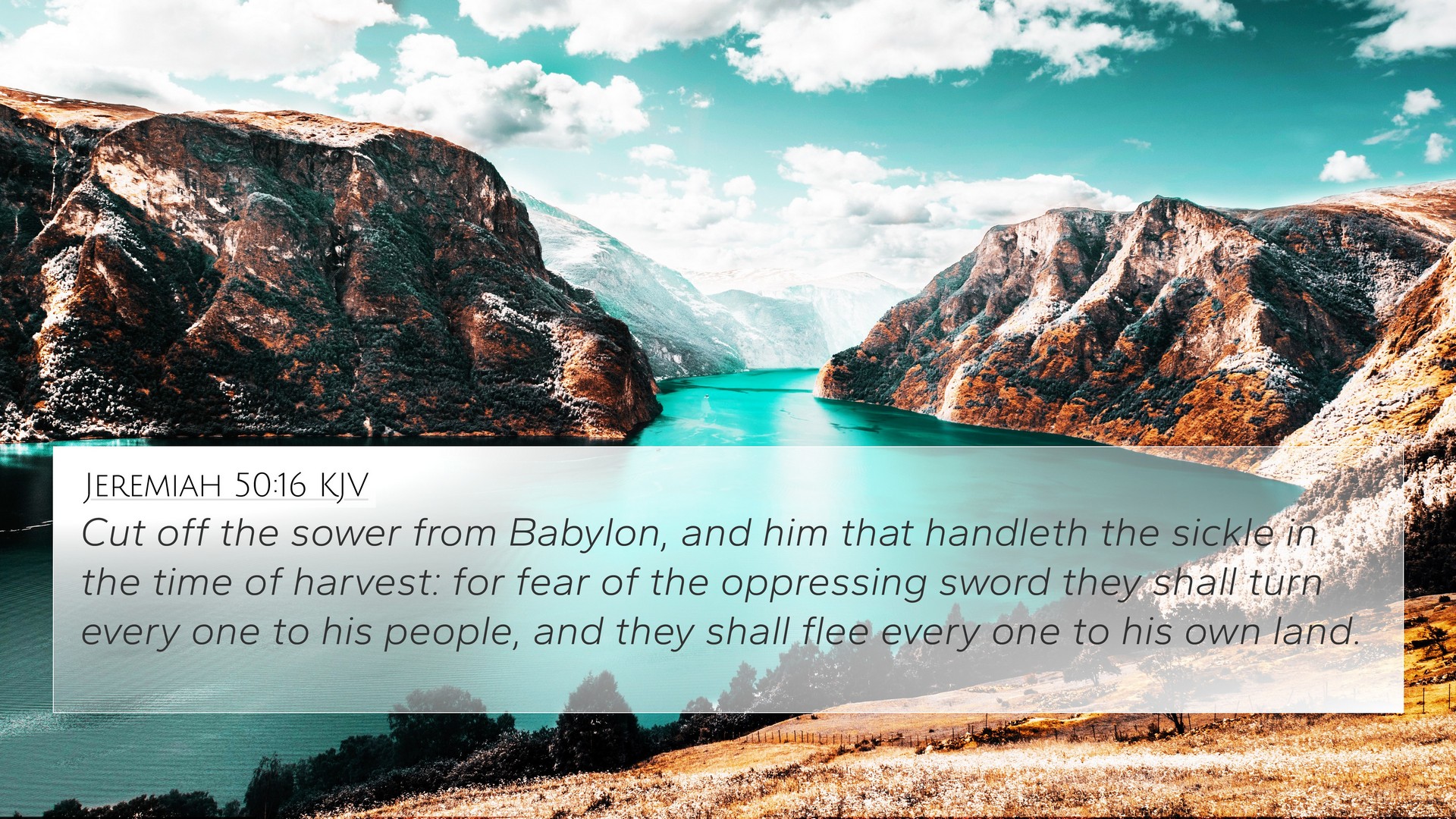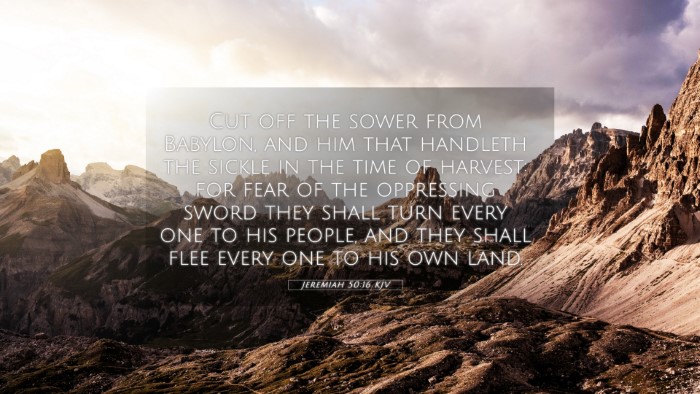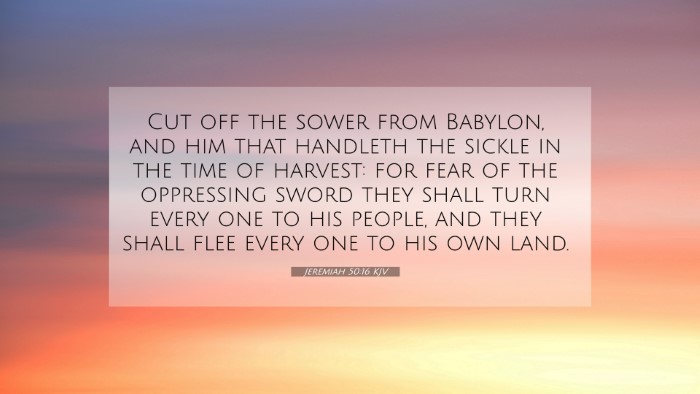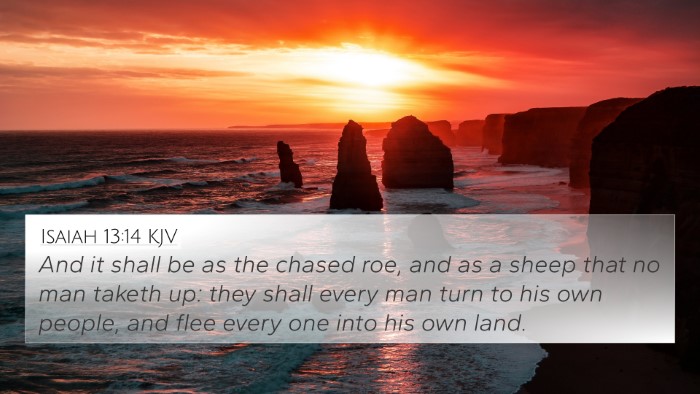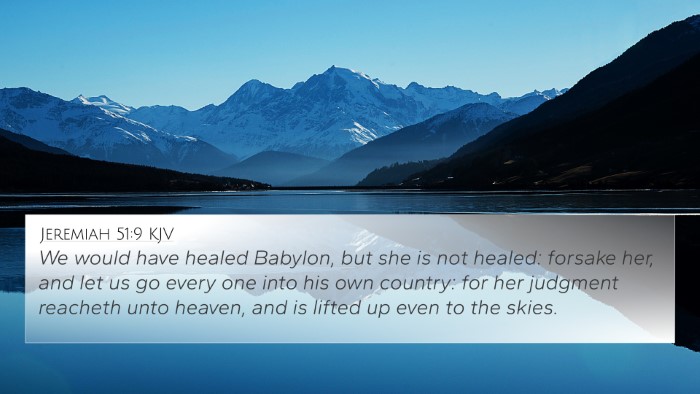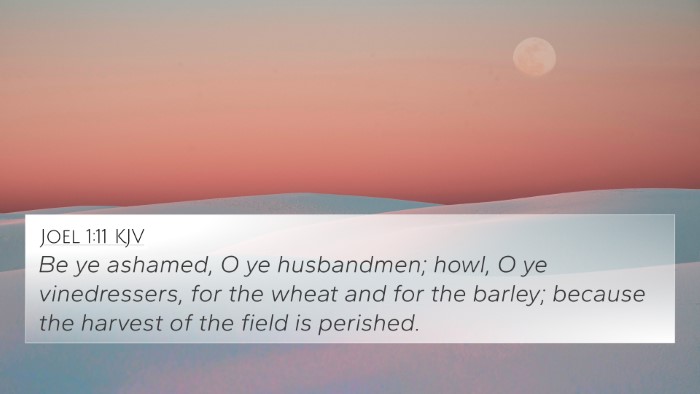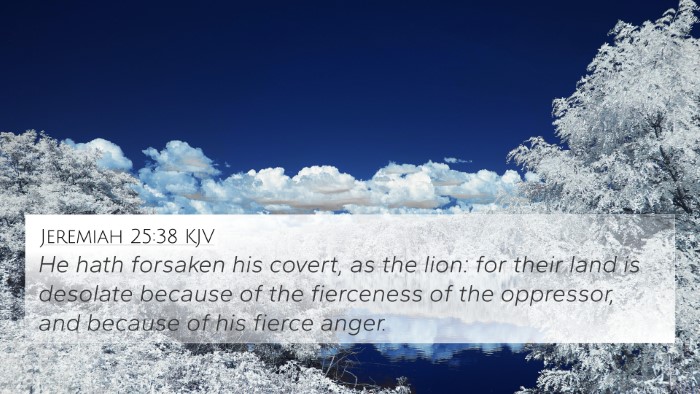Understanding Jeremiah 50:16
Jeremiah 50:16 states: "Cut off from Babylon the sower, and the harvests in the time of harvest: for fear of the oppressing sword they shall turn every one to his people, and they shall flee every one to his own land."
Verse Summary
This verse is a prophetic declaration regarding the fate of Babylon and its inhabitants. It communicates the idea that fear of destruction will cause the people to abandon their agricultural activities and return to their homeland.
Commentary Insights
To gain a deeper understanding, we can draw insights from various public domain commentaries:
-
Matthew Henry:
Henry emphasizes the impact of fear in this verse. The cutting off of the sower signifies a complete disruption of production and livelihood due to divine judgment. The reference to the "oppressing sword" indicates severe trials that drive individuals back to their origins, symbolizing a return to their roots and a turning away from the corruption of Babylon.
-
Albert Barnes:
Barnes interprets this verse within the broader context of God’s vengeance upon Babylon. He notes that the destruction will lead to great desolation, with the sower being cut off and brought to a state of helplessness. This serves as a warning that God’s judgment is inevitable and that all will ultimately return to their own kin, forsaking worldly pursuits.
-
Adam Clarke:
Clarke expands on the idea of the "harvest" reflecting not only physical crops but the spiritual reaping of consequences of sin. He portrays the verse as a foreshadowing of the desolation that will envelop Babylon, emphasizing that the people’s flight signifies their complete abandonment of what once bound them to their oppressor.
Cross-References for Jeremiah 50:16
Jeremiah 50:16 has several relevant cross-references that enhance our understanding of its themes. Here are some connections to consider:
- Isaiah 13:19-22: Isaiah’s prophecy about the destruction of Babylon parallels the warnings given in Jeremiah.
- Revelation 18:2: The fall of Babylon is further echoed in the New Testament, illustrating its ultimate demise.
- Jeremiah 51:5: Similar themes of desolation and the return of God’s people are found in this later chapter of Jeremiah.
- Micah 4:10: Micah’s prophecies contain similar images of fear and flight in the context of exile.
- 2 Corinthians 6:17: This New Testament verse discusses separation from the corrupting influences akin to the call away from Babylon.
- Lamentations 1:4: Lamentations provides a direct look at the impact of destruction and the flight of people, mirroring the themes of Jeremiah.
- Matthew 24:16: In the context of fleeing to safety, this New Testament admonition resonates with the warnings issued in Jeremiah.
Thematic Connections
Understanding Jeremiah 50:16 involves acknowledging the thematic connections presented throughout the Bible. These include:
- Judgment and Destruction: The overarching theme of God’s judgment against nations and individuals who oppose His commands.
- Return and Restoration: The call to return to one’s spiritual roots and the eventual hope of restoration following judgment.
- Fear and Flight: A recurrent motif where fear propels individuals to abandon their prior lives in search of safety and redemption.
Conclusion
Jeremiah 50:16 serves as a profound warning and a reminder of the transient nature of human endeavors and the unwavering justice of God. The insights drawn from public domain commentaries enrich our understanding, revealing interconnected themes and consequences within the biblical narrative. By utilizing tools for Bible cross-referencing, one can gain a deeper appreciation of the connections between this verse and others, facilitating a comprehensive study of scripture.
